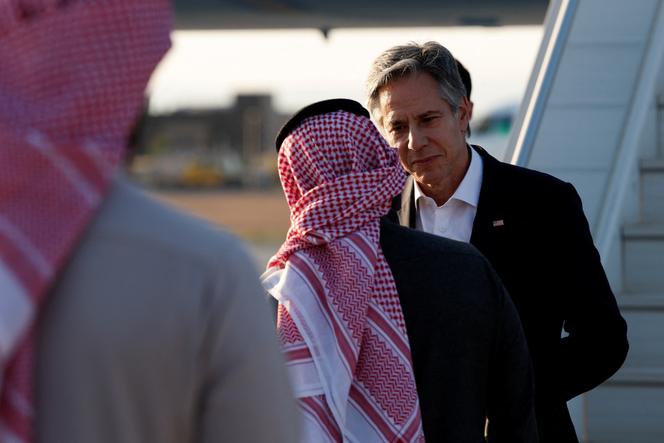


Following US-British strikes against Houthi targets in Yemen, Riyadh's call for restraint on Friday, January 12, was not without irony. It was a direct snub to Washington, which in 2016 demanded that Saudi Arabia put an end to the deadly war it had unleashed a year earlier against Yemeni rebels. This role reversal was emphasized by Mohammed bin Salman, "MBS," to US Secretary of State Antony Blinken, during their meeting in Al-Ula on January 8.
According to sources familiar with the discussions, the Saudi crown prince did not hesitate to point out that Riyadh had constantly warned Washington, at the start of its intervention in the war-torn country in 2015, of the threat posed by the Houthis, and that it had sought stronger American support, in vain. MBS has not opposed US strikes against the Houthis, but has warned against an escalation that would endanger the kingdom's security and the peace process it initiated with the rebels to end its war in Yemen.
Positioning itself as a mediator "can pay off in different ways for the Saudis," explained Farea Al-Muslimi, a Yemen expert at the Chatham House think tank. The Saudi crown is keen to stay out of the conflict that has pitted the Houthis against Israel and its American ally since the start of the war with Hamas in the Gaza Strip on October 7, 2023. Although it has sometimes "played a leading role in defending Israel against Houthi attacks by shooting down some of their rockets," added the expert, Saudi Arabia has ignored Washington's urgent calls to participate in a multinational naval protection force in the Red Sea.
This alliance was formed on December 18, 2023, with some 20 countries – including only Bahrain in the region – in response to Houthi attacks on merchant ships in the Red Sea. Riyadh prefers to offer assurances to the Biden administration on the issue of normalization with Israel, reiterating its ongoing commitment. "Saudi Arabia is in a very uncomfortable position. It obviously opposes the Houthis and their efforts to disrupt maritime traffic in the Red Sea, but it fears reprisals from them and the derailment of the efforts it has been making for months to negotiate its withdrawal from Yemen," analyzed Yemen specialist Thomas Juneau.
As rumors of US-British strikes became more concrete on Thursday evening, Saudi Foreign Minister, Prince Faisal bin Farhan, had a telephone conversation with his Iranian counterpart, Amir Abdollahian, a country allied with the Houthis. Since concluding a détente agreement with Iran under the auspices of China in March 2023, Saudi Arabia has embarked on a policy of regional appeasement. Ending the war in Yemen is a priority.
You have 45% of this article left to read. The rest is for subscribers only.
